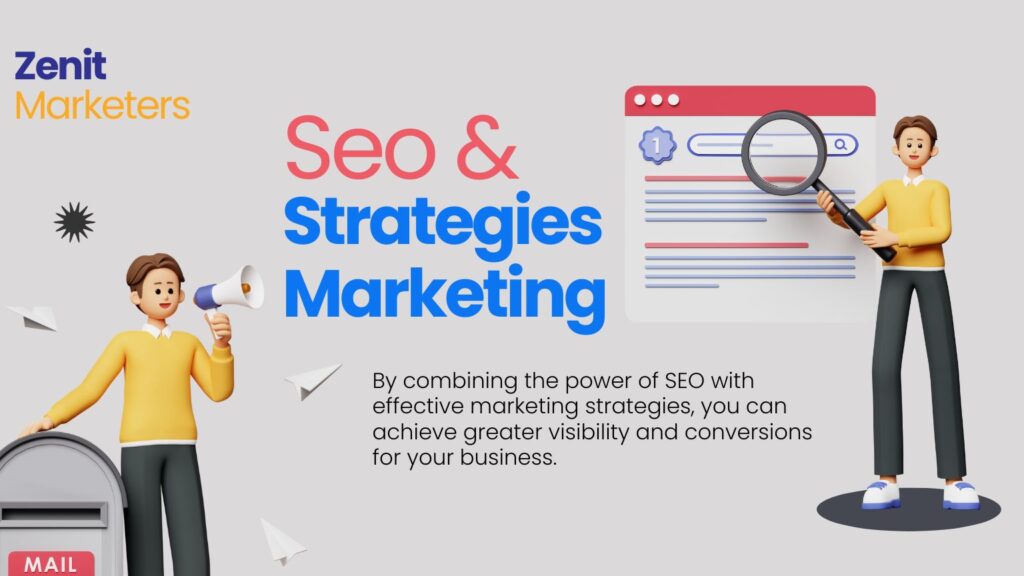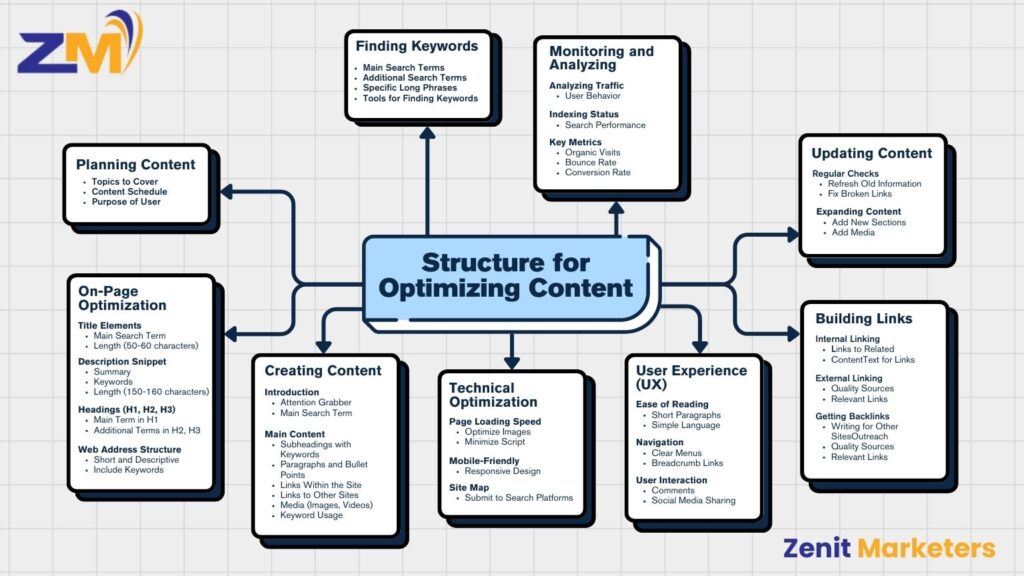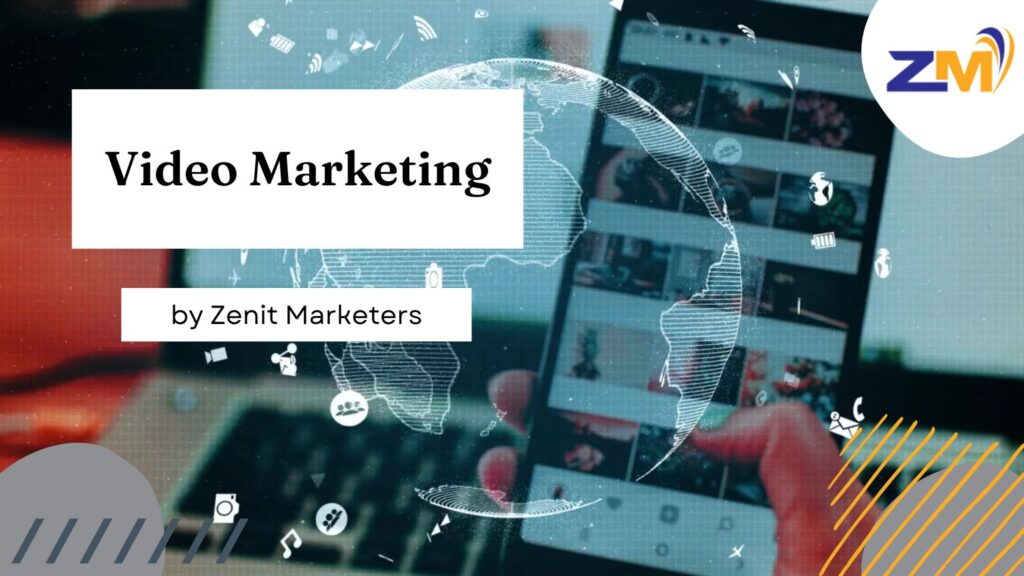In today’s competitive landscape, small businesses need to leverage every tool available to stay ahead. Digital marketing provides an opportunity for even the smallest companies to grow, build a loyal customer base, and generate more revenue—quickly and effectively. This article delves into 10 proven digital marketing strategies that can accelerate the growth of your small business.
1. Build a Strong Online Presence with SEO
Search Engine Optimization (SEO) is one of the most powerful ways to increase your online visibility, drive organic traffic, and attract potential customers. SEO involves optimizing your website to rank higher on search engine results pages (SERPs) like Google. Small businesses can use SEO to compete with bigger players, as search engines rank pages based on relevance and quality, not just brand size.

Key SEO Strategies for Small Businesses:
- Keyword Research: Use tools like Google Keyword Planner or Ahrefs to identify keywords that potential customers are searching for in your industry. Focus on both short-tail and long-tail keywords that are relevant to your business.
- On-Page Optimization: Optimize your website’s content, meta descriptions, images, and URLs to ensure search engines understand the focus of your web pages.
- Technical SEO: Improve website speed, ensure mobile responsiveness, and fix any technical issues (like broken links) that could hinder your SEO performance.
- Backlink Building: Increase your domain authority by earning backlinks from reputable websites in your industry. This signals to search engines that your content is valuable and trustworthy.
SEO can take time to show results, but with consistent effort, it can generate a steady stream of organic traffic to your small business website.
2. Leverage the Power of Social Media
Social media platforms like Facebook, Instagram, LinkedIn, and Twitter offer small businesses an affordable way to reach a vast audience. With billions of active users, social media allows businesses to connect directly with customers, showcase their products or services, and build a community around their brand.

Proven Social Media Strategies:
- Consistent Posting: Posting regularly helps keep your brand top-of-mind for followers. Use tools like Hootsuite or Buffer to schedule posts in advance.
- Engage with Followers: Respond to comments, messages, and mentions to show your audience that you value their engagement.
- Run Social Media Ads: Platforms like Facebook and Instagram offer affordable advertising options that allow you to target specific audiences based on demographics, interests, and behaviors.
- Use Hashtags: On platforms like Instagram and Twitter, hashtags help increase the visibility of your posts, making it easier for potential customers to find you.
By leveraging social media effectively, small businesses can build strong relationships with customers, increase brand awareness, and generate sales.
3. Implement Pay-Per-Click (PPC) Advertising
Pay-Per-Click (PPC) advertising is a powerful tool for driving immediate traffic to your website. PPC campaigns, such as those run through Google Ads or Facebook Ads, allow small businesses to place their ads in front of potential customers based on specific keywords or behaviors. Unlike organic methods like SEO, PPC ads appear instantly and can deliver rapid results.

Benefits of PPC for Small Businesses:
- Quick Results: Unlike SEO, which can take time to generate traffic, PPC ads are instant. As soon as your campaign goes live, your ad is visible to your target audience.
- Targeted Advertising: With PPC, you can target specific audiences based on keywords, demographics, location, and even the time of day.
- Control Over Budget: You have complete control over how much you spend on PPC advertising, which makes it an accessible option for small businesses with limited budgets.
PPC advertising is particularly effective when used in combination with other digital marketing strategies, such as SEO and content marketing, as it can help capture leads at various stages of the customer journey.
4. Maximize Content Marketing to Drive Engagement
Content marketing is a long-term strategy that helps build trust and authority within your niche. By providing valuable and relevant content to your audience, you position your small business as an expert, which can lead to higher conversion rates and brand loyalty.
Types of Content Marketing for Small Businesses:
- Blog Posts: Create blog content that answers common questions your customers have, offers solutions to their problems, or provides insight into industry trends. Blog posts improve your SEO, drive traffic, and provide content that can be shared on social media.
- Infographics: Visual content, such as infographics, can make complex information more digestible and engaging for your audience.
- E-books & Whitepapers: Offering in-depth resources like e-books or whitepapers in exchange for contact information can help you generate leads.
- Case Studies & Testimonials: Sharing success stories of past clients builds trust with potential customers, showing them the value of your services or products.

By consistently delivering high-quality content, you can attract new customers, retain existing ones, and establish your brand as an authority in your industry.
5. Optimize for Local SEO
For small businesses that rely on local customers, optimizing for Local SEO is critical. Local SEO helps your business appear in search results when potential customers are looking for services or products in your area. Google My Business (GMB) is a free tool that allows you to manage how your business appears in local search results, maps, and business directories.
Local SEO Tips:
- Claim and Optimize Your GMB Profile: Ensure your business information—such as name, address, phone number, and hours of operation—is accurate and up-to-date.
- Collect Customer Reviews: Positive reviews on platforms like Google and Yelp can improve your rankings in local search results.
- Local Keywords: Use location-based keywords in your content, meta descriptions, and website copy. For example, “best bakery in Chicago” or “plumbing services near me.”
- Engage with Local Directories: List your business on local online directories like Yelp, TripAdvisor, and industry-specific directories.
By focusing on local SEO, small businesses can dominate their local market and attract customers who are nearby and ready to purchase.
6. Harness the Power of Email Marketing
Email marketing remains one of the most cost-effective digital marketing strategies for small businesses. It allows you to communicate directly with your audience, nurture leads, and keep your customers informed about promotions, updates, or special offers.
Proven Email Marketing Tactics:
- Segment Your List: Divide your email list into segments based on factors like purchase history, location, or behavior. This allows for more personalized and targeted messaging.
- Automated Email Campaigns: Set up automated email workflows, such as a welcome series for new subscribers or a cart abandonment email for e-commerce sites.
- Compelling Subject Lines: Craft engaging subject lines that encourage recipients to open your emails.
- Call-to-Actions (CTAs): Every email should include a clear CTA, directing the reader to take the next step, whether that’s making a purchase, signing up for a webinar, or reading a blog post.
Email marketing helps build long-term relationships with customers, providing them with value and increasing the likelihood of repeat business.
7. Use Video Marketing to Capture Attention
In recent years, video marketing has emerged as a highly effective way for businesses to capture attention, communicate their message, and drive engagement. Platforms like YouTube, Instagram, and TikTok offer small businesses the opportunity to showcase their products, share behind-the-scenes content, or offer tutorials.

Video Marketing Tips:
- Short-Form Content: Create short, engaging videos that quickly capture the viewer’s attention, especially for platforms like Instagram Reels or TikTok.
- Product Demonstrations: Showcase your products in action to give potential customers a real sense of their value.
- Behind-the-Scenes Content: Humanize your brand by sharing behind-the-scenes videos, interviews with employees, or a “day in the life” of your business.
- Customer Testimonials: Video testimonials from satisfied customers can build trust and credibility for your small business.
Video content can significantly enhance your digital marketing strategy by increasing engagement, building brand awareness, and driving conversions.
8. Embrace Influencer Marketing
Influencer marketing is a strategy where businesses collaborate with individuals who have a dedicated following on social media platforms. These influencers promote products or services to their followers, often leading to increased brand visibility and credibility.

How Small Businesses Can Use Influencer Marketing:
- Micro-Influencers: You don’t need to partner with celebrities or mega-influencers. Micro-influencers (those with 10,000 to 50,000 followers) often have highly engaged audiences and can deliver more targeted results.
- Authenticity Matters: Choose influencers whose values align with your brand. Authentic recommendations from influencers are more likely to convert followers into customers.
- Product Giveaways & Collaborations: Collaborate with influencers to run giveaways or special promotions that encourage their followers to engage with your brand.
Influencer marketing allows small businesses to tap into new audiences and gain credibility through trusted voices in their industry.
9. Measure and Optimize with Analytics
To ensure that your digital marketing efforts are yielding the desired results, you must track and analyze performance metrics. Digital marketing analytics provide valuable insights into what’s working, what’s not, and where adjustments need to be made.
Key Metrics to Track:
- Traffic Sources: Use tools like Google Analytics to determine where your website traffic is coming from (organic search, social media, paid ads, etc.).
- Conversion Rates: Measure how many visitors are completing the desired action, such as making a purchase, signing up for a newsletter, or downloading an eBook.
- Engagement: Monitor social media engagement metrics, such as likes, comments, shares, and click-through rates.
- ROI: Calculate the return on investment (ROI) for your digital marketing campaigns to ensure they are delivering value.
By regularly analyzing your performance, you can refine your strategy, allocate resources more effectively, and maximize your digital marketing results.
10. Experiment with Marketing Automation
Marketing automation allows small businesses to streamline their marketing processes, freeing up valuable time and resources. Tools like HubSpot, Mailchimp, and Active Campaign offer automation features for email marketing, social media posting, and lead nurturing.
Benefits of Marketing Automation:
- Save Time: Automation tools can handle repetitive tasks, such as sending follow-up emails or posting on social media.
- Improve Lead Nurturing: Set up automated workflows to nurture leads based on their actions, such as downloading a resource or signing up for a webinar.
- Personalization: Use automation to deliver personalized messages at the right time, improving customer experience and increasing the likelihood of conversion.
Automation allows small businesses to focus on higher-level strategy while still maintaining consistent and personalized communication with their audience.
Conclusion
Digital marketing offers small businesses the opportunity to grow rapidly, increase visibility, and compete on a global scale. By implementing these 10 proven strategies—SEO, social media, PPC advertising, content marketing, local SEO, email marketing, video marketing, influencer marketing, analytics, and marketing automation—you can effectively reach your target audience, convert leads into customers, and grow your business.
With a well-executed digital marketing strategy, small businesses can achieve rapid growth and long-term success, regardless of their industry or budget.




